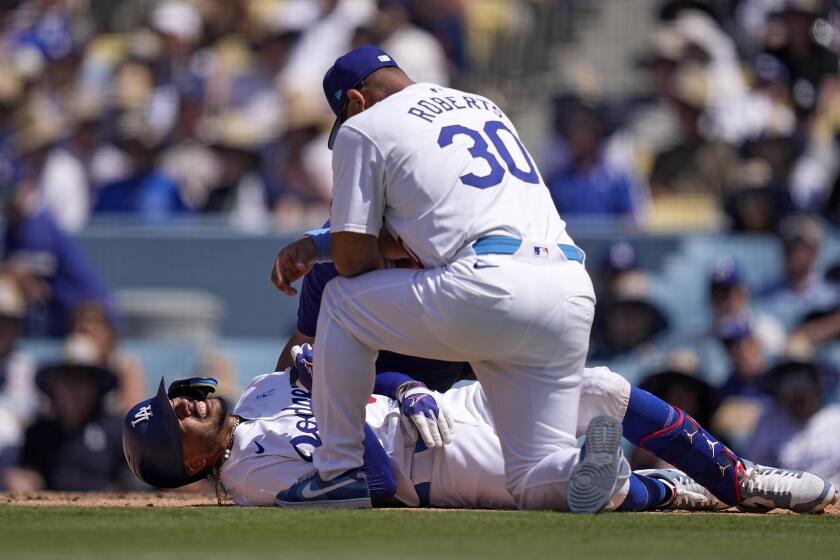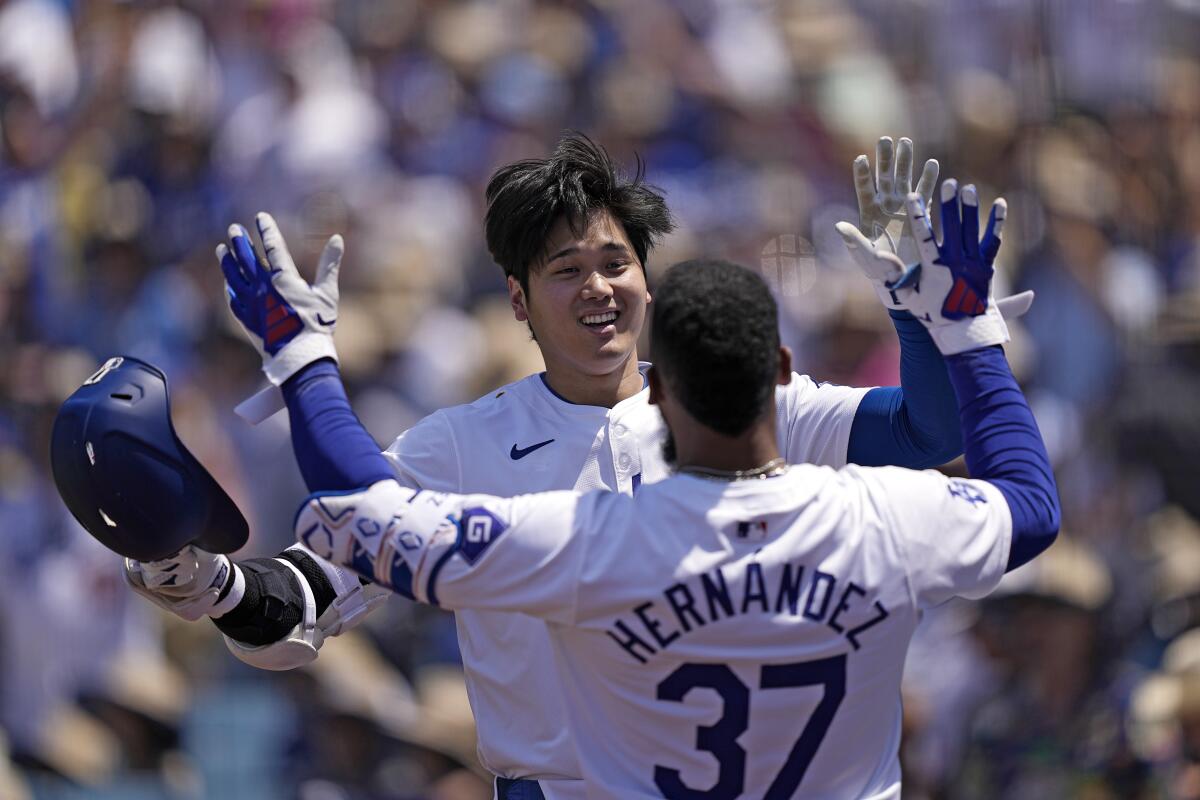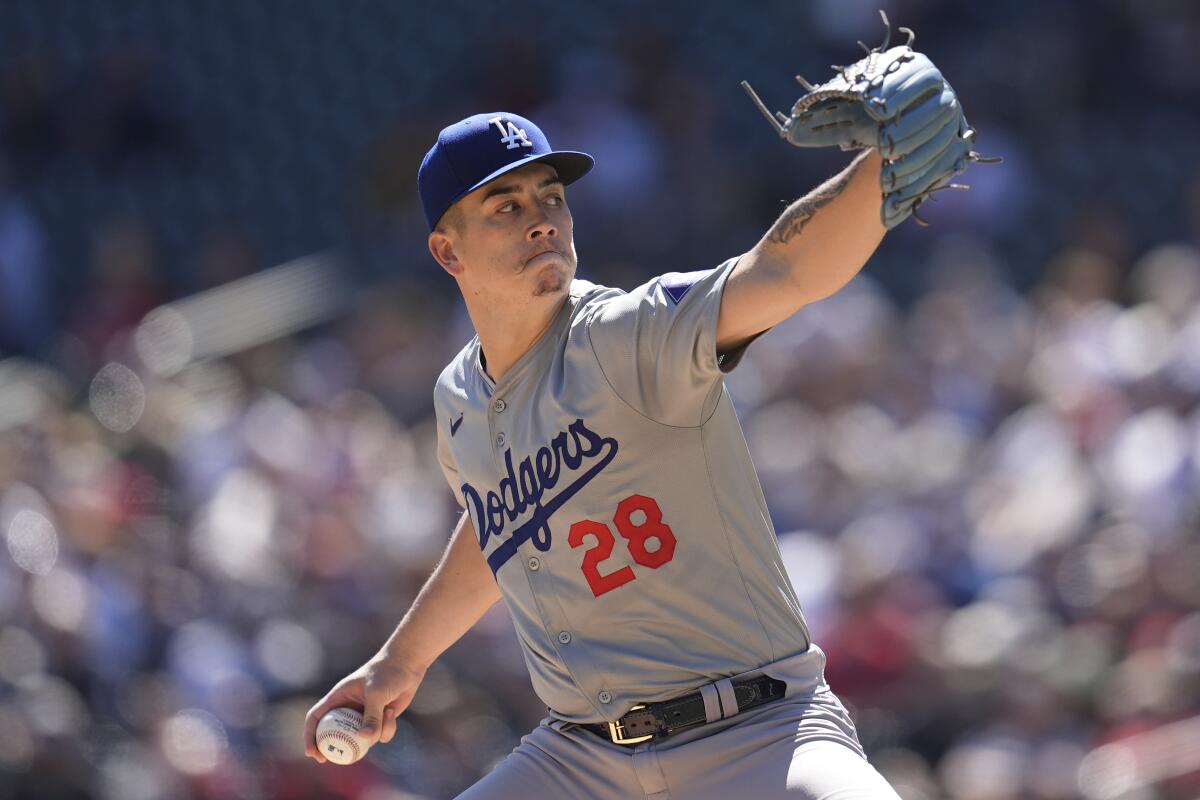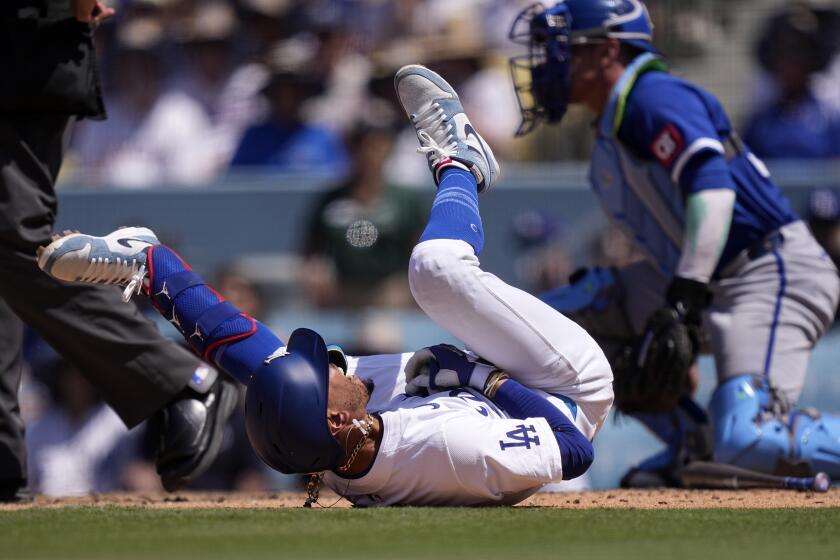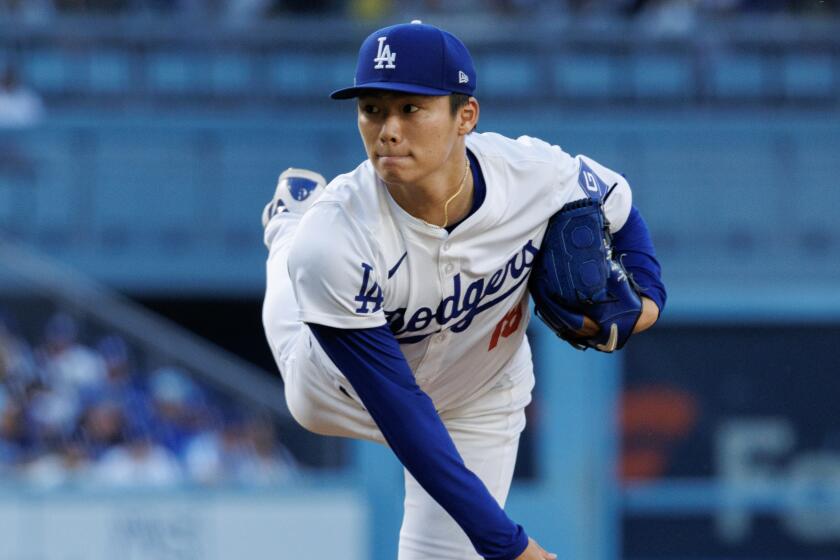Since the week the Dodgers acquired Glasnow and Yamamoto this offseason, it was clear those two would be the anchors in their rotation.
Glasnow and Yamamoto were not only the highest-paid pitchers on the team, costing the Dodgers more than half a billion to add this offseason, but they were also the most established — Glasnow (who is 7-5 with a 3.00 ERA) as a supremely talented, albeit injury-plagued, MLB veteran; Yamamoto (6-2, 2.92 ERA) as one of the most decorated pitchers in Japan’s Nippon Professional Baseball league.
From the start, they were tagged as co-aces. Now, with Yamomoto’s timeline to return (or ability to perform once he does) unclear, half that responsibility will have to be shouldered somewhere else.
Internally, the best candidates might be the Dodgers’ youngest ones.
Gavin Stone is having a breakout season, currently 10th in the NL with a 3.01 ERA. Bobby Miller had similar success last season, with a 3.76 ERA, and is set to return from a shoulder injury Wednesday.
Both have the stuff to keep taking steps forward. And now, their importance to the team stands to grow.
The Dodgers also have more well-known veterans, including James Paxton (6-1, 3.92 ERA), Walker Buehler (1-4, 4.64 ERA) and Clayton Kershaw (who will soon begin a rehabilitation assignment after shoulder surgery this offseason).
That group, however, is more fraught with questions. Paxton’s command has been frustratingly inconsistent, with 32 walks in less than 60 innings. Buehler has struggled in his return from a second Tommy John surgery, giving up fewer than three runs only once. Kershaw is coming back from his first career surgery at age 36.
With time, maybe one of them will round into form. Perhaps someone else (such as Dustin May, who is also working his way back from surgery) will emerge as a surprise weapon.
In the meantime, though, the Dodgers’ list of legitimate No. 2 starters in Yamamoto’s absence is somewhat thin, beginning (and maybe also ending) with the two youngest members of their rotation.


